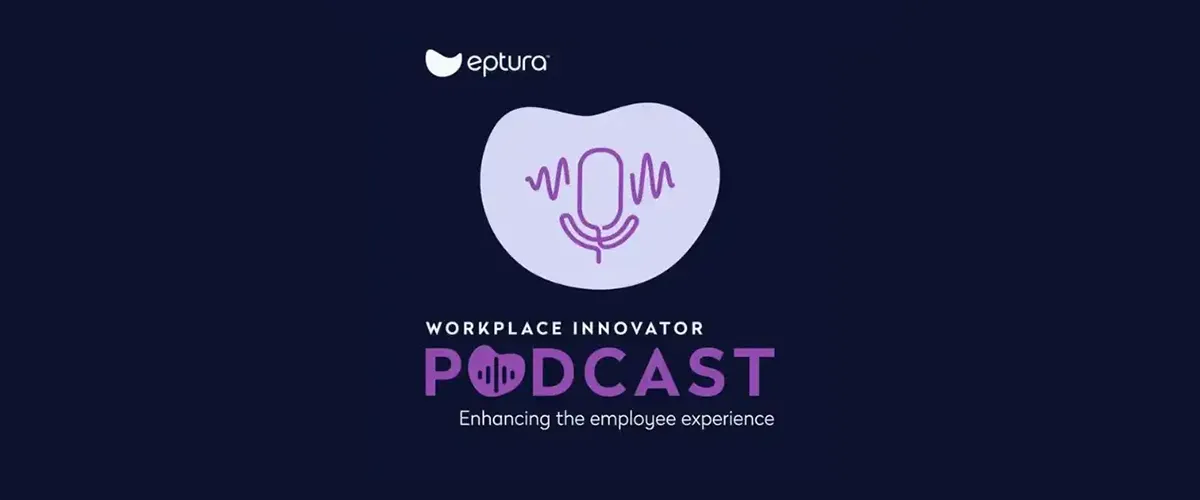
In episode 313 of Workplace Innovator, host Mike Petrusky speaks with Kursty Groves Knight, an author, speaker, and workplace innovation consultant at Shape Work Life. They talk about her new book, co-authored by past guest Neil Usher, “Workspace Made Easy – A Clear and Practical Guide on How to Create a Fantastic Work Environment,” and explore the importance of flexibility in workplace strategies and the need for a balance between top-down leadership and individual responsibility in creating a successful work culture.
Agenda
- Why organizations should embrace complexity in the workplace
- How leadership and individual responsibility can shape the future of work
- Why communication is critical for managing workplace change
- What’s in Knight’s new book, why she wrote it, and who should read it
What you need to know: Workplace takeaways
Takeaway 1: Flexibility and adaptability are key in navigating the current era of work
The shifting dynamics of the workplace require a more adaptable approach to employee management and workplace design, and while there is a desire for simple, straightforward solutions, the complex nature of the current environment requires a nuanced approach.
“There’s a lot of very black and white, divisive this or that, you know, putting into boxes thinking. We want a solution, we want it to be this, we want it to be simple… But the truth is it’s not that simple,” cautions Knight.
Solutions need to be multifaceted and bidirectional.
“There is a level of top-down that’s needed. But by the same token, there’s also a level of responsibility from the individual to lean in and compromise as well. So, I think it’s a two-way street.”
Takeaway 2: The importance of human connection in the workplace
Despite the increasing shift toward remote and flexible work arrangements, human connection and face-to-face interactions in the workplace have an enduring value. Connections foster deeper trust and understanding among team members, which can be beneficial for both individual and organizational performance.
“The trust that a face-to-face encounter develops is so much more deep, meaningful, and strong than anything that is completely remote,” Knight explains. She also emphasizes the importance of creating environments that enable effective work and foster social connections, arguing, “Work is something that is important for us as individuals, but it’s also important in terms of the social connections that we generate.”
Takeaway 3: Practical guidance and real-life examples are essential for navigating workplace challenges
Organizations want practical, accessible guidance to help individuals and organizations navigate the complexities of the modern workplace, and real-life examples and stories can help illustrate potential pitfalls and successful strategies.
And it’s an idea that helped her decide what to include in her new book. “We decided to answer a lot of questions that we were both hearing in the industry, from clients, from designers, and from professionals, and really giving you tips and tricks and tools to the methodologies to figure that out.” Knight also included “true stories,” recounting real-life experiences and challenges encountered in the workplace, which she hopes provide valuable lessons for readers.
Workplace management insights
- Work is not only essential for economic survival but also for individual reasons and social connections. The trust developed from face-to-face encounters is deeper and more meaningful.
- The shift to hybrid work can create uncertainty among employees when there’s a lack of clear communication and guidelines from leadership.
- The future of work is complex and cannot be boxed into simple solutions. It requires a balance of both top-down leadership and individual responsibility.
- Learning from mistakes is crucial in the workplace, and it’s important to share these experiences to help others avoid similar pitfalls.
Listen to the full podcast here.
Go deeper. Dive into more episodes of Eptura’s Workplace Innovator podcast.








